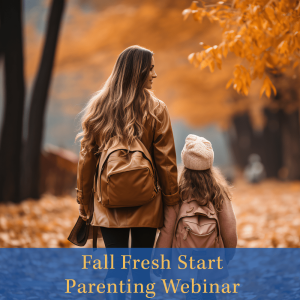How To Control Your Emotions
Buzz, buzz! “Why won’t the flies stop buzzing around my head?” I wondered as I sat out in the mountain shade trying to digest my new book. First one, then four, all buzzing around my head. It seemed like it was a dance for them, and it looked like a dance for me. I was waving my arms every which way trying to get the pesky insects to leave me alone. I didn’t do anything to them. Why wouldn’t then just leave me be so that I could enjoy my book?
Their obvious pleasure was my immediate frustration. I really started to get angry inside. I had such wonderful plans for a relaxing afternoon in the shade with my book, and they were ruining it. With the touch of each new fly on my head and face I felt more and more upset at the bugs. Then it hit me.
These mountain flies had no idea I was mad. They didn’t care at all. I could have yelled and screamed, but that wouldn’t have made a difference. I swatted and swung, but they kept coming back. My anger and frustration was only hurting me.
Rules Of Engagement
Isn’t there some unspoken rule that the person with the most emotion wins? I counsel with families all the time who believe this principle. Fathers, mothers, and children all addicted to yelling at each other and getting emotional to try to get the other person’s attention and their own way. When someone shows tears family members respond with sympathy. When someone shows anger, family members respond with anger, or they take the side of the angry person. Emotion is a strong sensation in the body. It must mean the person experiencing it has really been wronged, right?
Maybe. But, even if a person has been wronged by another, it isn’t the emotional reaction which makes the victim right. Emotion does not make a person right! And, it doesn’t always even make you feel better. Many times, emotional venting makes you feel worse.
In a world where people are obsessed with how the body feels and functions, emotions are often seen as uncontrollable. In fact, in some circles people think that controlling your emotions is dangerous. They think that the only way to solve a problem is to get it all out, no matter how it comes out.
This philosophy has its place when dealing with deeply rooted fears, or healing from abusive pasts etc. However, in regular relationships venting emotions all the time, in out of control ways, is a recipe for relationship disaster.
The practice ends up looking a lot like me trying to get my new book read and swatting at pesky flies. We didn’t relate at all. I was worried about me, and the flies were worried about themselves. It was survival of the fittest. If I would have smashed one or two flat they would have hated me for it, and I would have gotten my way, but where would our relationship be?
I know it’s silly to talk about relating to flies, but that is the whole point. How often do we treat our family members like I treated the flies? How often do we spend a lot of energy fueling emotion and only succeed in creating more confusion and distancing ourselves from them more? How often do we expect our emotions to be the reason someone should relate to us and care about our desires?
Emotions Are Not Enough!
The great men and women who have lead out in the history of our world all had one thing in common; self-government. They knew that in order to make any difference or any discovery it would require personal sacrifice, which requires self-mastery. They had to make themselves do difficult things on a regular basis. They often went without sleep and couldn’t attend all the social events because they had a mission to perform. They took the “road less traveled” on purpose. They naturally had frustrating moments in their journey. But, what if they would have just stopped at frustration? Would we have light bulbs, x-ray machines and motor cars?
I’m sure many of these great people of the past and present have felt strong, productive, even spiritual emotions as well. They have probably felt their hearts burning with the desire to succeed or the desire to help others. These feelings are spiritual messages to our hearts and minds which actually encourage thought, unlike emotional feelings. But, it wasn’t the feeling alone which made them successful in their life’s mission. It was the self-government they chose to have. They chose to act deliberately against all odds, and the action altered their lives for good.
Watching Is Okay!
So, what do you do when your mission is raising an out of control child and they are whining once again?
When a person is angry, I watch. I describe what is happening and offer instructions to help them gain focus.
When a person is crying because they are anxious or mad, I watch. I don’t try to stop the cry by consoling or controlling the person. Instead I describe what the situation looks like and offer gentle instructions to help them gain focus.
If you know that emotions don’t make a person right, then you can choose to be calm. A calm parent always does more good at changing the heart of a child than an emotional one.
The brain is an amazing body part. Once the emotional center of the brain is engaged, everything else seems to shut down. At this time, deliberate thought seems almost impossible. But, if by chance the logic of the brain is spoken to instead of the emotional center of the brain, then the person can wake up the mind and think logically again. At this point the heart of the person is open again to feel, instead of just emote. When the heart of the person is ready to be taught, it can change for the better.
Metaphorically speaking, what if we all stopped swatting at flies? What if we thought about our relationships, and did something to help people get calm instead? Seeking to understand, calmly describing what is happening and reminding a person of self-government skills they already know is the best way to help them through a problem.
You see…no matter how desperate the problem seems, or how wronged you feel…..emotion doesn’t make you right. Truth cannot be felt without an open heart. And emotion confuses the heart. We all know that people who mess with our emotions can’t be trusted. We can’t feel truth when we are with them. So, in order to feel truth on a regular basis, we should keep our hearts in tune to truth by keeping our emotions from taking over our actions. Yes, emotions are real, and they are dangerous if you don’t learn how to govern them.





